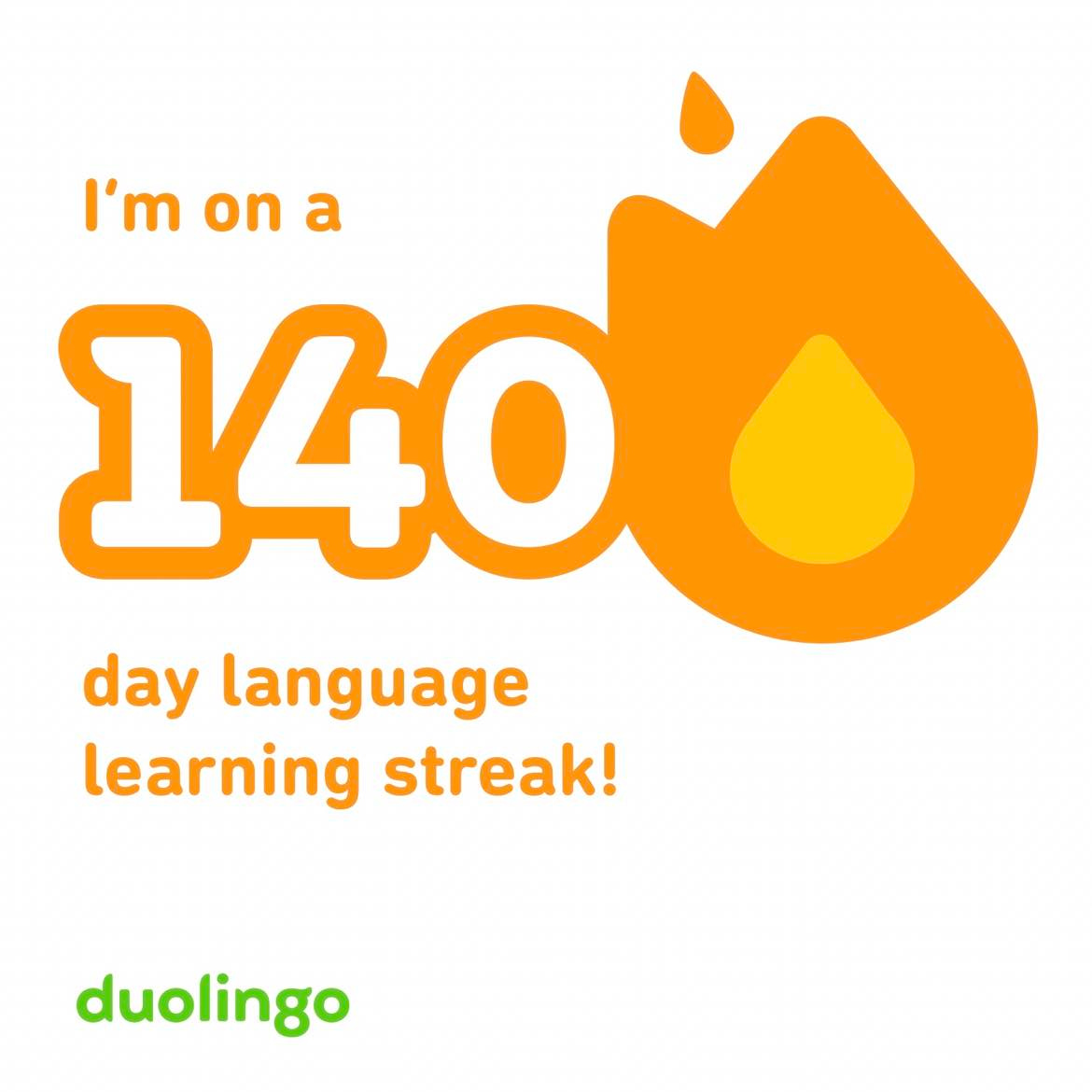Does Duolingo Work?
A low-effort language learning solution -but do you actually learn languages?
This is what happens when you commit early on to doing a Substack once a week but time gets away from you or what you want to talk about requires deep research and thought before putting something out there in the world. So, this will be a short article about what is Duolingo, examining scientific papers and other sources on whether or not it actually works, and then attempting to draw some learnings from our research in the end
What is Duolingo?
So, not to brag, but I have a pretty long streak on Duolingo.
“language learning.” That’s a good starting point for explaining what Duolingo is. On their website they describe themselves as
The free, fun, and effective way to learn a language!
How? As a freemium web, iOS, and Android solution that offers language courses for 43 languages as of 2023, including fictional ones. They also provide language tests/certification, and from personal experience their exercises include translation from reading/listening, picture/word matching, fill in the blanks, and many more.
From personal experience I can also say that the product heavily gamifies the language learning experience - constantly reminding you of the length of your language learning streak is just one of many examples.
Duolingo also claims in their FAQs that they can match the proficiency that an equivalent university language course in half the time. What is clever about their homepage marketing is that they will drop a suggestion like
Make your breaks and commutes more productive with our iPhone and Android apps.

ich in my opinion implies that you just need a few minutes a day to get to where you need to go. The surface level marketing does not mention how much time it would take to get to what is called B2 proficiency, which is the level that allows you to get a job in the language of concern.
So can Duolingo take you to B2 proficiency in half the time a traditional university education would take you, or at all?
Does it work? - what the research says
Duolingo cites a 2020 study to back up their “half the time of a university claim.” In fact, there is no shortage of studies supporting Duolingo’s efficacy, pushed by Duolingo itself. They have a whole “efficacy” page dedicated to arguing their side:
Confirmed Gains (2023) - “similar to previous findings on Spanish-speaking English learners, Portuguese-speaking English learners achieved high intermediate proficiency in reading and intermediate proficiency in listening”
Promising Progress (2022) - “a comparison of reading and listening scores across [French and Spanish] sections showed that advancing in the course led to more learning”
Speaking Skills (2021) - “half of learners in the study had speaking skills good enough to produce complete sentences, remember words quickly, and speak comfortably about everyday topics at a conversational pace, achieving beginner-level or higher speaking proficiency”
University-Level Caliber (2021) - “learners [who completed half of B1 level content in Spanish or French] performed as well on reading and listening tests as students who completed five semesters of university language instruction”
A Strong Start (2020) - “learners [who completed half of A2 level content in Spanish or French] performed as well on reading and listening tests as students who completed four semesters of university language instruction”
This is a path well-trodden by Duolingo and you can feel free to check out their efficacy page but I essentially regurgitated the main points in the bulleted list above.
But what about the other side? The following studies don’t seem as convinced
A Cross Comparison and Efficacy Study of Duolingo and an Entry-level German 1A Course (2015) tells us that the university students were able to outperform the Duolingon ones in an entry level German language course
Effectiveness of Duolingo App in Developing Learner's Vocabulary, Grammar and Pronunciation: A Case Study of a blended TESOL Classroom (2020) tells us that while “students who used Duolingo, plus online learning, registered better in vocabulary development, simple grammar sentences, and fluency in English learned” unfortunately “a different result was obtained in pronunciation, where students using the traditional methods registered better results in pronunciation.”
Gamification in mobile-assisted language learning: a systematic review of Duolingo literature from public release of 2012 to early 2020 (2021) actually highlights flaws in the available literature about Duolingo, noting that “the majority of research from 2012-2020 was design-focused, quantitative in nature, and used non-probability sampling methods” and highlighting “research gaps specific to Duolingo”
Rather than having this be a list of papers on one side and a list of papers on the other, I wanted to sprinkle some personal opinion and note that it was a stretch to find anti-Duolingo articles, and even the ones that criticize Duolingo still have good things to say about the product. Nonetheless a follow-up is needed to examine the reliability of the positive research around Duolingo, and the legitimacy of the criticisms against it.
Final Thoughts
My personal takeaway from this is that if you are limited on time in the day to learn a language, Duolingo is the way to go, otherwise it might be worth exploring traditional language courses or other alternatives.




